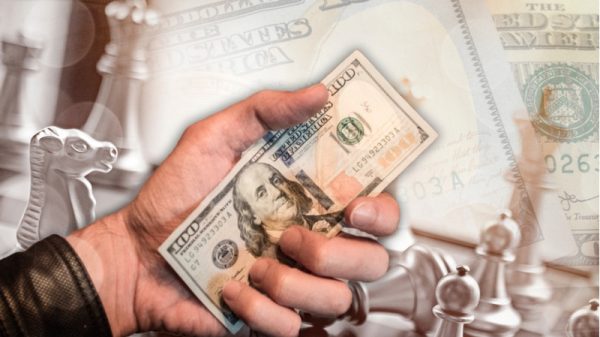Accepting the Democratic nomination for president on Thursday, Vice President Kamala Harris made no explicit mention of the history that would follow her election. Her mentions of women were restricted to descriptions of her work as a prosecutor or to reproductive rights. She mentioned her South Asian heritage only in the context of her mother, who emigrated from India to the United States.
We can assume that Harris’s speech was attuned to public opinion polling of what targeted voters want to hear and, by extension, that the polls or Harris sought not to draw explicit attention to her gender and racial background. Perhaps it was in part because Democrats are still stinging from Hillary Clinton’s failed 2016 effort, in which the unofficial campaign slogan — “I’m with her!” — was not subtle about the historic stakes.
Polling from Fairleigh Dickinson University released on Friday, though, suggests that an explicit embrace of Harris’s identity might prove beneficial as Election Day approaches.
The poll took an unusual approach to the question of electoral support, beginning by asking respondents to evaluate the importance of various issues to their vote. A third of respondents got only policy-centered issues, like immigration or taxes. A third had “the race or ethnicity of the candidate” added to the mix. The last third were presented with “whether the candidate is a man or woman” (but not the item about race).
Overall, Harris had a healthy lead over former president Donald Trump, though that came only after the question about issue importance and therefore could have been influenced by the issues offered. Which was the point: The pollsters wanted to determine whether having race or gender at top of mind when choosing a candidate influenced the results.
It did. Overall, Harris had a seven-point lead. Among those who weren’t presented with the race or gender questions — who weren’t “primed,” in Fairleigh Dickinson’s verbiage — Trump and Harris were essentially tied. Among those who had been presented with gender as an issue, Harris had a 10-point advantage. Among those presented with race as an issue, she had a 14-point lead. (The overall seven-point lead combines those three groups.)
Among men, being primed with the gender issue didn’t have much effect. Among women, though, it was the difference between a 16-point Harris advantage (the unprimed group) and a 26-point one. White respondents preferred Trump by 11 points when they weren’t primed on race or gender. When primed on race, they narrowly preferred Harris. Among non-White respondents, Harris’s 16-point advantage among the unprimed jumped to a 36-point one after hearing about race as an issue.
The poll also segmented responses by gender in an interesting way. Respondents were asked whether they saw themselves as “completely” masculine or feminine or some less-strong descriptor, like “mostly” or “slightly.”
About half of men chose the “completely” modifier, a group the pollsters refer to as “traditional” men. Those were by far the strongest supporters of Donald Trump. Men who didn’t select that descriptor preferred Harris by 20 points. The “completely masculine” men preferred Trump by more than 30 points, leading to a Trump lead among men overall.
That includes “completely masculine” men who were primed with the gender issue. Among those who weren’t primed on race or gender, Trump had a 52-point lead.
The intertwining of Trumpism and perceived masculinity appears in other polling, too. On Saturday, the New York Times assessed the overlap of age and gender in its polling conducted with Siena College. The article focused on how younger men (members of Gen Z) felt as though they were disadvantaged by changes in society. What’s striking, though, is that young men didn’t differ much in their views of the election relative to older men. The big gap among younger voters was driven by the extent to which younger women preferred Harris.
What’s useful about the Fairleigh Dickinson poll in particular is that it incompletely incorporates an element of the election that hasn’t yet emerged to a significant extent. Campaigns often test messages and attacks to carefully tailor their messages for television ads and mail. (And, as noted above, speeches.) This poll offers that in a microcosm: What happens to voters if they make their decision while considering what makes Harris unique?
The answer is that she benefits.



























